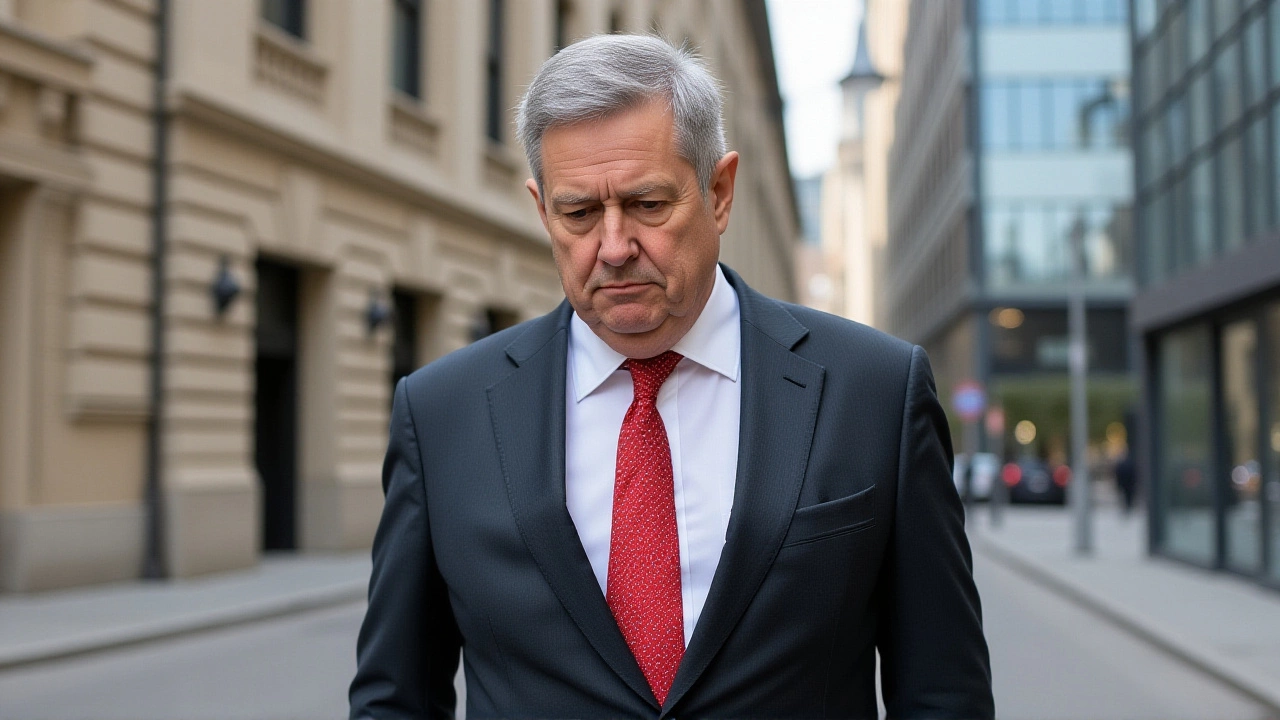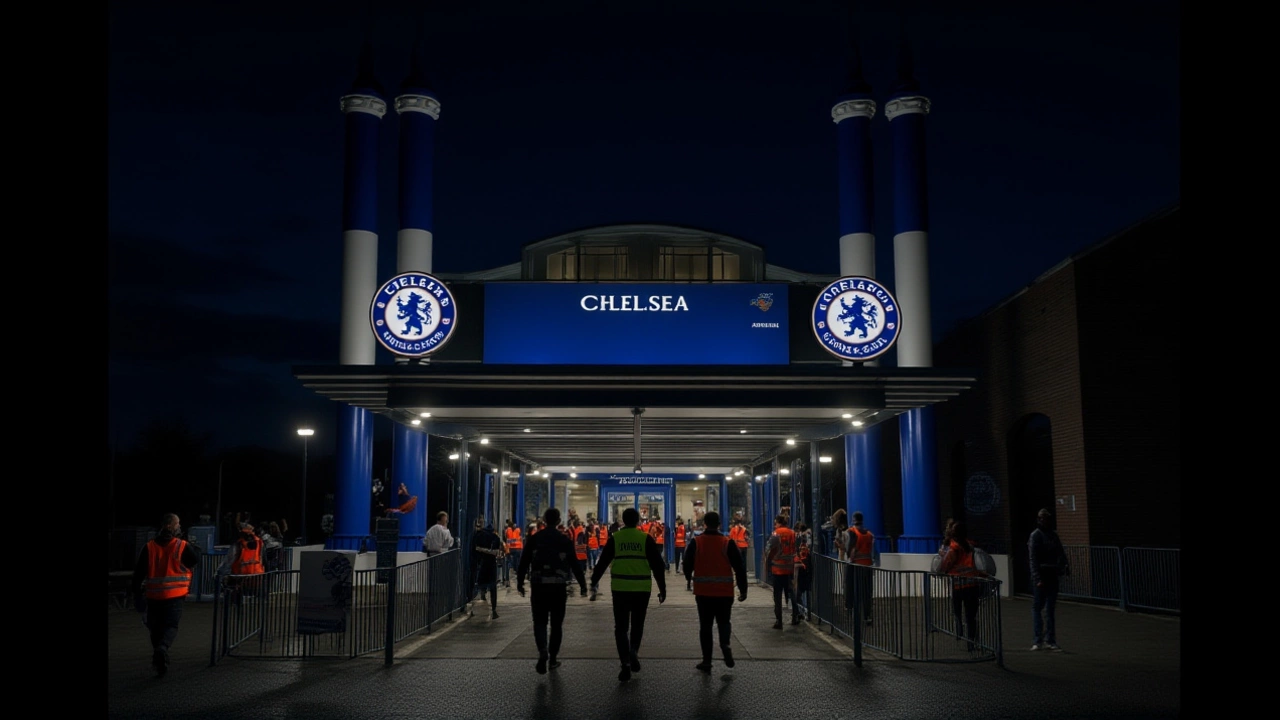When Berkshire Hathaway quietly added 17.8 million shares of Alphabet Inc. in the third quarter of 2025, it didn’t just make a $4.3 billion bet on search and YouTube—it signaled the quiet end of an era. The purchase, revealed in November 2025 through a regulatory filing, stunned longtime followers of Warren Edward Buffett, the 95-year-old investor who built his fortune avoiding tech stocks. For seven decades, Buffett stuck to blue-chip consumer brands, banks, and railroads. Now, with his CEO tenure ending at year’s end, the move suggests the next chapter of Berkshire may look very different.
Why This Bet Broke the Mold
Buffett famously avoided tech stocks, calling them too unpredictable. He passed on Microsoft in the 1980s, Amazon in the 2000s, and even Google in its early years. But Alphabet’s rise—especially its dominance in search, video, and AI—forced a rethink. Between July 1 and September 30, 2025, Alphabet’s stock jumped from under $180 to $244 per share. By November 22, it hit $285.23, a 58.5% surge in just four months. Berkshire’s stake, valued at $4.3 billion as of September 30, now makes up 1.7% of its entire portfolio—more than double its 0.7% holding in Amazon.Here’s the twist: Buffett almost certainly didn’t make this call. Berkshire Hathaway’s equity portfolio is managed by two lieutenants: Ted Weschler and Todd Combs, who together oversee $28 billion in assets. Weschler, who manages about $13 billion, has a track record of tech bets. Combs, with $15 billion under his belt, has shown appetite for data-driven businesses. The Alphabet purchase fits their style—not Buffett’s.
The Russo Factor: A Mirror to Buffett’s Philosophy
Enter Tom Russo, Managing Member of Gardner Russo & Quinn LLC. His firm, with a $9.3 billion U.S. stock portfolio as of September 30, 2025, holds $1.1 billion in Alphabet and $1.8 billion in Berkshire—31% of its entire holdings. Russo told Business Insider that Buffett’s move was “brilliantly timed.” If Berkshire bought early in Q3, it may have paid just $3.1 billion for a position now worth over $5 billion.But Russo didn’t just cheer. He warned of a hidden danger: Alphabet’s $90+ billion in planned 2025 capital expenditures. “AI isn’t like buying a railroad,” he said. “You can’t just lay track and collect tolls. You’re pouring billions into chips, data centers, and talent—and the returns aren’t guaranteed.”
Still, Russo sees the same qualities Buffett once loved in Coca-Cola or American Express: a “share of mind,” pricing power, and cash flow. Alphabet generated $64.7 billion in operating cash flow over the past year. Berkshire? $42.3 billion. That’s not a coincidence. “It’s a cash machine with a moat,” Russo added. “And the moat is getting wider.”
Who’s Really Running Berkshire Now?
The real story isn’t Buffett’s change of heart—it’s the transition to Greg Abel, Berkshire’s incoming CEO. Abel, who’s been groomed for this role for years, has quietly pushed for greater tech exposure. He’s not a tech insider, but he’s a numbers guy who understands scale and moats. Nasdaq analysts noted that Alphabet’s position in Berkshire’s portfolio is now larger than Amazon’s, and growing faster. “This isn’t Buffett’s portfolio anymore,” one analyst wrote. “It’s Abel’s.”That shift matters. Under Abel, Berkshire could start treating tech not as a risky gamble, but as a core asset class. The company already owns a stake in Apple—its largest holding by far. Alphabet could become the second. That would mean a fundamental reorientation: from old-economy stalwarts to modern infrastructure.
The Bigger Picture: AI Isn’t the Risk—The Payback Is
The market is fixated on AI. Everyone’s afraid of a crash. But Russo’s warning cuts deeper: Alphabet’s AI spending might not pay off like its search engine did. Google Search and YouTube are profit engines with near-monopoly pricing. AI projects—like Waymo’s self-driving cars or DeepMind’s protein-folding models—are long-term bets with uncertain ROI.Compare that to Berkshire’s own business model: collect premiums, invest in predictable cash flows, avoid speculative capital allocation. Alphabet’s $90 billion spend could be its biggest gamble yet. If it fails to monetize AI at scale, the returns could lag. But if it succeeds? The company could become the next Microsoft—or even surpass it.
And here’s the quiet truth: Alphabet doesn’t need to win every AI bet. It just needs to win one big one. With $160 billion in cash and equivalents, it can afford to lose. That’s the same advantage Buffett once prized in See’s Candies or Geico: financial muscle to outlast competitors.

What’s Next for Berkshire and Alphabet?
Look for more tech exposure in Berkshire’s 2026 filings. Abel may push for acquisitions in cloud infrastructure, cybersecurity, or even generative AI tools. The company could also start pressuring Alphabet’s leadership for better AI monetization—perhaps even pushing for a spin-off of its cloud division, Google Cloud, which remains unprofitable.Meanwhile, Alphabet’s stock remains undervalued by traditional metrics. Its P/E ratio still sits below the Nasdaq average, despite its dominance. That’s why Russo, and likely Weschler and Combs, see opportunity. They’re not betting on AI hype. They’re betting on a company with the world’s most used operating system, the most searched engine, and the most watched video platform—all generating cash like a printing press.
Behind the Numbers: A Timeline
- July 1, 2025: Alphabet stock trades below $180
- September 30, 2025: Berkshire files 13F showing 17.8 million shares acquired; stock closes at $244
- November 22, 2025: Stock hits $285.23; Berkshire’s stake now worth over $5 billion
- November 2025: Berkshire’s portfolio update reveals Alphabet as 1.7% of holdings, Amazon at 0.7%
- December 31, 2025: Warren Buffett steps down as CEO; Greg Abel takes over
The message is clear: the Oracle of Omaha may be stepping away, but his legacy is evolving.
Frequently Asked Questions
Why did Berkshire Hathaway invest in Alphabet now, after avoiding tech for decades?
Berkshire’s investment was likely made by its investment managers, Ted Weschler and Todd Combs—not Warren Buffett. They recognized Alphabet’s dominant cash flow, competitive moats in search and video, and its ability to fund AI without risking solvency. Unlike past tech bets, Alphabet isn’t a startup—it’s a profitable giant with $64.7 billion in annual operating cash flow, making it resemble Berkshire’s own business model.
Is Alphabet’s $90 billion AI spending a red flag?
Yes, but not because AI is overhyped—it’s because past tech wins like Google Search and YouTube delivered returns fast. AI investments, like Waymo and DeepMind, require years of R&D with uncertain payoffs. If Alphabet can’t turn AI into a profit engine comparable to its core ads business, shareholders may see lower returns. Still, with $160 billion in cash, Alphabet can afford to wait.
How does Tom Russo’s stake in Alphabet compare to Berkshire’s?
Russo’s firm, Gardner Russo & Quinn, holds $1.1 billion in Alphabet and $1.8 billion in Berkshire—31% of its $9.3 billion U.S. portfolio. That’s a higher concentration than Berkshire’s 1.7% stake in Alphabet. Russo sees Alphabet as a modern-day version of the companies Buffett once favored: cash-generating, durable, and undervalued. His high-conviction stance mirrors Buffett’s own concentrated investing philosophy.
What does Greg Abel’s upcoming leadership mean for Berkshire’s future?
Abel’s leadership signals a shift toward tech as a core asset class. Unlike Buffett, he’s open to larger tech holdings and understands scale-driven businesses. Alphabet’s rise in Berkshire’s portfolio—surpassing Amazon—suggests future acquisitions or increased stakes in cloud, cybersecurity, or AI infrastructure. Expect more moves like this: not because of hype, but because Abel sees durable value in modern platforms.
Why is Alphabet considered a ‘Buffett-style’ stock despite being tech?
Buffett loved businesses with wide economic moats, pricing power, and consistent cash flow. Alphabet checks all three: Google Search controls 90% of global search, YouTube dominates video, and Android runs 70% of smartphones. These aren’t fleeting trends—they’re infrastructure. And with $64.7 billion in annual operating cash flow, it generates money like a utility. That’s why Russo and Berkshire’s managers see it as a classic Buffett stock—just dressed in silicon.
Could Alphabet become Berkshire’s second-largest holding after Apple?
Absolutely. Apple is currently Berkshire’s largest holding at over $40 billion. Alphabet’s $4.3 billion stake is small in comparison—but growing fast. If Abel increases the position to 3-4% of Berkshire’s portfolio, it would exceed $10 billion. That’s plausible, especially if Alphabet’s AI monetization gains traction. With its cash flow and market dominance, Alphabet has the potential to become a cornerstone holding for the next generation of Berkshire.
